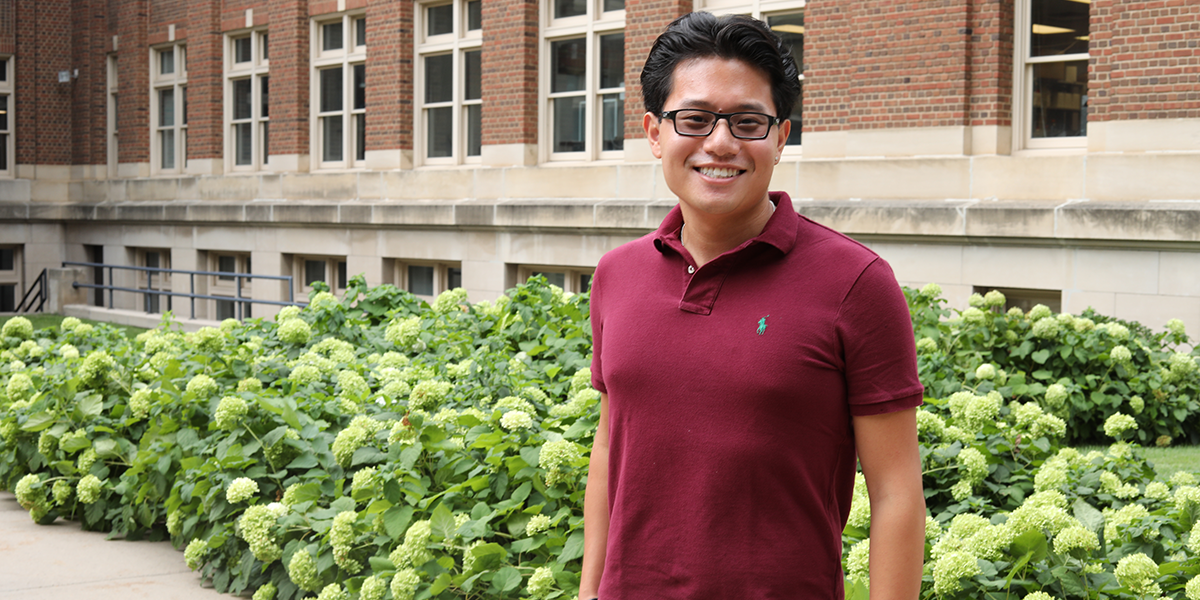
When Roj Cosiquien started college, he jumped into research right away, finally able to immerse himself in an area of longstanding interest. He started like many do, learning basic skills in a genetics lab. The experience piqued his interest in the potential of genetic research to create new therapeutic tools and the social implications of genetic technology. He went on to do research relating to genetic counseling and spinal fusion surgery.
“I just wanted to dabble in everything and see what is out there to get the full scope,” Cosiquien says. “Turns out I really enjoyed it!”
The genetics, cell biology and development major was among 68 students around the country – including fellow College of Biological Sciences student Madelyn Blake – to receive the prestigious Astronaut Scholarship last spring. The award is given to a highly select group of outstanding sophomores and juniors who intend to pursue research-oriented careers in mathematics, engineering, and the natural and applied sciences.
While the avid investigator has continued to rack up research experience throughout his time in college, he traveled to the Philippines last summer for an observership at the University of Santo Tomas Medical School. It wasn’t his first time observing in a hospital, but it was his first time observing how things are done in another country. The differences between the two health care systems made an impression.
“Tuberculosis is not a common disease in the United States, but that isn’t the case in the Philippines, especially within the urban poor population,” says Cosiquien. “I got to be in the operating room with a tuberculosis patient that needed to have a total knee replacement due to the seriousness of the condition. It was interactions like this that really showed me the health issues different communities face – I was observing it all up close.”
His research experiences have only served to affirm Cosiquien’s plan to continue down that path with an eye to making healthcare more accessible. He plans to complete an MD/PhD and eventually become a member of faculty at a medical school.
“Such a big part of healthcare is taking care of patients, but research and teaching are also integral aspects to help future generations while simultaneously pushing the boundaries of modern medicine.”
–Christine Hazuka